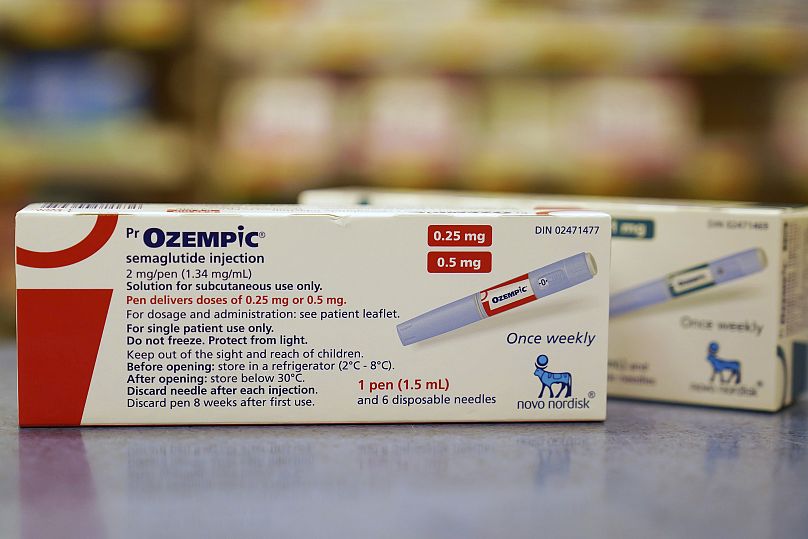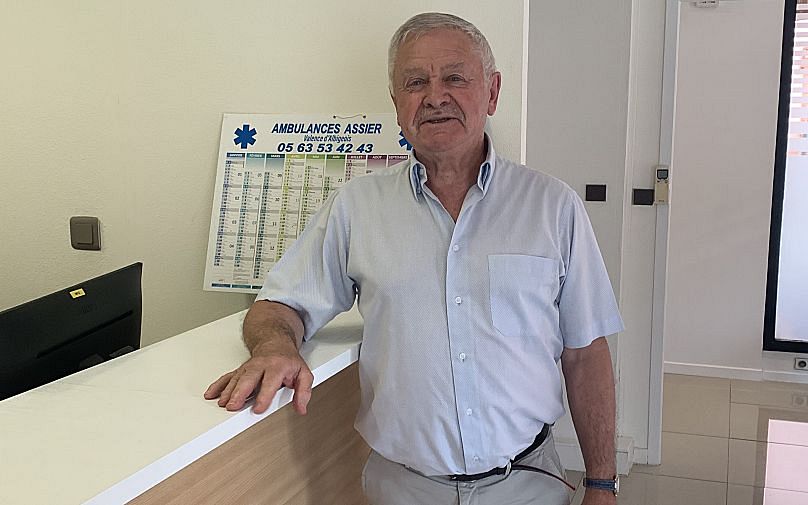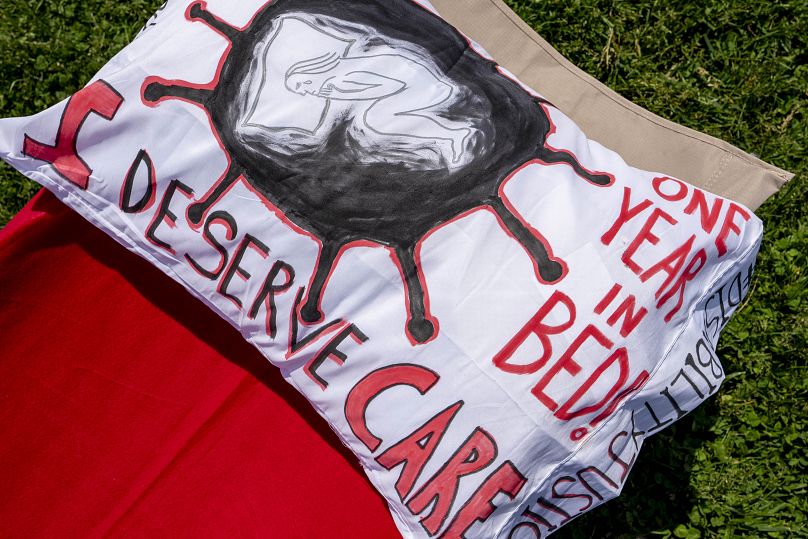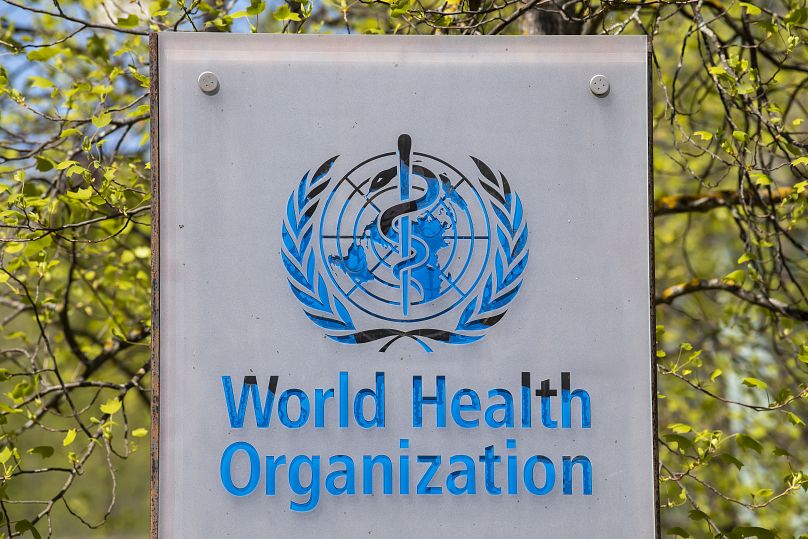Euronews Next looks back at some of our biggest health stories of 2023.
Wondering what to read over the holiday season?
Here's a look back at our biggest health stories over the past year, with some of our best-read features, interesting scientific studies, and top news pieces from 2023.
Ozempic: How a TikTok weight loss trend caused a global diabetes drug shortage - and health concerns
A diabetes drug is facing shortages worldwide and causing health concerns as users flood social media with posts boasting its properties as a "wonder" weight loss hack.
France's drug safety agency said this week it was ramping up surveillance measures to ensure that prescriptions of the treatment, Ozempic, are limited to patients with type 2 diabetes.
Produced by the Danish company Novo Nordisk, Ozempic is an injectable drug that regulates blood sugar levels and insulin. It’s usually prescribed to adults suffering from Type 2 diabetes, the most common type of diabetes. Read more here.
As European doctors retire, could AI help to solve a health workforce shortage?
Experts say AI is not there to replace health workers but rather could help to automate some of the more administrative tasks that fall on them.
As a growing number of research studies analyse the use of artificial intelligence (AI) in detecting diseases or interpreting patient data, these technologies could soon become more widely available in doctors’ offices.
But how could that change the workload for doctors and nurses? It’s a question that many experts in the field have been considering as European countries face health worker shortages. Read more here.
'We want to give back': Retired doctors open practice to address medical worker crisis in France
A unique medical practice run by retired doctors has opened its doors in rural southern France amid an ongoing healthcare crisis.
Yves Carcaillet was just a year into his retirement when he was approached by his city to go back to work.
He’s now one of eight doctors aged 69 to 78 who are running a clinic in the city of Albi to address a medical professional shortage in the area. The practice is the first of its kind and was launched in late June.
"I'd been a doctor for 45 years and found leaving my patients very painful, especially when I knew they would struggle to find another doctor to take them on," the 74-year-old doctor told Euronews Next. Read more here.
German scientists make a 'major discovery' that could slow down the ageing process
A new study from Germany has potentially found the answers to time-old questions: what drives ageing and what can we do to reverse it?
Despite centuries of research and progress in medicine, many mysteries remain unresolved, chief among them being an understanding of what causes ageing and how can we slow it down or reverse it.
But a new study by a team of scientists in Germany, published in the scientific journal Nature, may finally have found the answers to these questions. Read more here.
'Trying to find solutions’: Worsening drugs shortage is leaving pharmacists and patients in the dark
Shortages of common older medicines are increasing. Experts say it’s in part because pharmaceutical companies are de-incentivised from producing them.
At a pharmacy in eastern Paris, there’s a long list of medicines that are currently unavailable from suppliers.
Pharmacist Pierre-Antoine Drubay says he has seen these shortages increase in the last year, estimating that on any given day, around a third of the medicines patients are seeking are out of stock.
It is affecting medicines for all pathologies, he added, from antibiotics to medicines used to treat cardiovascular disease and diabetes. When the pharmacist’s supplier outside the French capital says the medicines aren’t available, the only option left is to troubleshoot. Read more here.
Europe is home to the world's heaviest drinkers. Which country drinks the most alcohol?
Among the 10 countries that drink the most in the world, nine are in the EU. But there are big differences between nations.
If you feel that Europeans drink a lot, your hunch is correct: people across the continent consume more alcohol than in any other part of the world.
Each year in Europe, every person aged 15 and over consumes, on average, 9.5 litres of pure alcohol, which is equivalent to around 190 litres of beer, 80 litres of wine or 24 litres of spirits. Read more here.
'It’s not gone. It’s changing. It’s killing': The COVID variants the WHO is watching closely
There are several circulating subvariants of Omicron globally. But what are they and why are we not as concerned as WHO officials about it?
While the height of the pandemic may be over, the virus that causes COVID-19 continues to mutate with multiple variants circulating in every country.
Yet despite this, testing and surveillance have decreased, with experts urging people to keep taking the threat of this disease seriously. Read more here.
Climate change is helping this new deadly virus to spread across Europe
Warmer temperatures are transforming Europe into the perfect habitat for ticks carrying CCHF, a deadly virus which in the worst cases results in death.
A deadly disease spread by ticks and usually found in the Balkans, Africa, Asia, and the Middle East could soon spread across Europe as climate change pushes the insects to move up through the continent, according to scientists.
Experts have been ringing alarm bells over the potential spread of Crimean-Congo hemorrhagic fever, or CCHF, which the World Health Organization (WHO) has listed among its 9 "priority diseases". Read more here.
World facing human health catastrophe from unchecked climate change, new report warns
In its eighth report, the Lancet Countdown project has made some dire projections for human health should we fail to stem the climate crisis.
The lives of current and future generations hang in the balance, according to the authors of a new report into the consequences of inaction on limiting temperature increases.
Scientists have long warned of the catastrophe facing the climate should we fail to keep temperature increases to no more than 1.5 C above pre-industrial levels. Read more here.
'Geneva patient' becomes first to be cured of HIV after ‘normal’ stem cell transplant
After 20 months after interrupting antiretroviral therapy, HIV was undetectable in the patient’s blood.
A man known as the “Geneva patient” has become the latest person in the world to be cured of HIV after a stem cell transplant for cancer treatment. Read more here.
'We're still at home sick': 36 million people across Europe are living with long COVID symptoms
Around 36 million people in Europe and Central Asia may be experiencing symptoms of long COVID, according to new estimates from the World Health Organization (WHO).
Fen van Rhijn was working in a pulmonology ward caring for COVID-19 patients in March 2022, when they contracted the virus.
Little did the 32-year-old internal medicine resident know that it would drastically alter their quality of life. Read more here.
First IVF baby born in the UK with DNA from three parents in major trial to avoid defective genes
The controversial trial of mitochondrial donation treatment has proven a success in the UK, preventing a newborn baby from inheriting defective genes.
An IVF baby created from the DNA of three separate people has been born in the UK, as scientists try to tackle the passing on of defective genes carried in the mother’s mitochondria.
The baby was born to one genetic father and two genetic mothers after researchers at the Newcastle Fertility Centre were granted permission to trial the controversial procedure back in 2017. Read more here.
How is the World Health Organization funded, and why does it rely so much on Bill Gates?
Critics complain about the major role the Bill and Melinda Gates Foundation plays in funding WHO, but who else can the agency turn to?
The Bill & Melinda Gates Foundation – which still stands strong despite its two co-founders splitting up after 27 years of marriage – said last month it was "not right" for the charity to take on such a big role in funding the World Health Organization (WHO).
Over the years, the billionaire philanthropists have become the WHO’s second biggest donor, making the health agency heavily dependent on their support to keep functioning. Read more here.
Reading your mind: This AI system can translate thoughts to text
The AI system can translate people’s thoughts to text, by scanning their brains while they listen to a story - or even imagine telling a story.
Artificial intelligence has been shocking and inspiring millions of people in recent months with its ability to write like a human, create stunning images and videos, and even produce songs that are shaking up the music industry.
Now, researchers have revealed another potential application that could have huge implications - AI that can essentially read minds. Read more here.


















